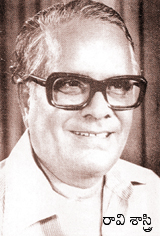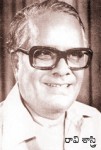by Nidadavolu Malathi.
The tiny ripples keep moving even as they are soothing to the eyes, cool, calm, jaunty, and in unique patterns. A baby fish shot up as if from nowhere into the air, up some six inches and dived back into the water. At the spot where it fell, waves spread out in circles as if marking its space. I kept staring, my glued to the spot – will it jump up from the same spot again? Or, will it shoot for another spot? How high this time? For the moment, the fish got all my attention, one hundred percent!
I heard a bit of a rustle on my left and turned in the that direction. Ten yards away from me, a ten-year-old boy, settling down on the shore with his his fishing gear, totally preoccupied with his work on hand. He carefully opened the bait box, picked a worm which appears to have the most prospects of enticing a fish, stuck it on to the hook, surveyed the body of water for a good spot to throw the fish line. He moves the pole as, probably that’s the next step. I have no idea how fish are caught. Can he really identify a spot for catching fish or is he just going through the process as he was trained to do? How will he know the fish took his bait? What will he do to get the fish’s attention? I was mulling over these questions.
I was also admiring his steady gaze. He certainly is very patient, which we don’t see in children of his age nowadays in. Will he catch at least one fish today? I wish he will, for my sake, if not his! I am getting involved in the process of catching fish; that is how I am feeling at least. I am not sure whether I am worried about the boy or the fish.
“Enough of that, let’s go,” said my Head.
“What is the rush? Like some earthshaking agenda is waiting for us,” I said.
“How long are you going to watch him? I am bored, I want to go.”
“Wait a few more minutes. I want to see who wins—the fish escapes or the boy catches.”
“The boy is stupid and so are the fish. If he wants fish, he can go to the market and buy some. If the fish wants food, they have plenty of weeds and germs in the water, ready to eat. Why go for a bait on the pole? And of course, your brain is the worst, for sitting here and watching them.”
“Right, you are the only one with brains, nobody else in this world is smart enough for you,” I snarled.
“There is no life if you sit in one place like this, no change, no action. I hate being stuck in one place, without movement, annoying, very annoying. Frankly, whether that boy catches fish or not is a very minute matter in this vast universe,” my Head kept hollering.
I hate this Head of mine. It has no patience, no balance at all. Hum, not a penny in income, not a moment of peace. Forget the income, why not enjoy the peace at least? … Monkeys in the forest are better than this Head, chi, chhi
“Ha ha, okay, why don’t get a monkey’s head and stick it in on your shoulders?”
“Ha ha ha, why get another? I already have one, don’t I, I mean the way he hop around? … Never mind. Tell me where do you want to go?”
“Let’s go home, we can watch TV.”
“What is there to watch at this time of day?”
“Plenty. Didn’t the TV provider say we are getting 250 channels?”
“He did but what he did not tell is, out of the 250 channels he had promised, half of them are the same, like Channel 40 and 240. Then take away the channels which air paid programming, which if you ask me is a double wham for us.”
“What do you mean?”
“First, we pay the provider, which means we are subsidizing the commercial, since whoever is doing the commercial pays the provided and he also has to collect from us, the consumers. Again, when we buy the product, we are paying the business again, that is actually three times.”
“Are you going to get to the point in this decade?”
“The point is there are less than one dozen channels that make any sense at all and that we may watch. Oh, I must warn you of reruns and the commercials within the shows running for 4 or 5 minutes at a stretch, hopeless, if you ask me. They’re filling our heads with trash,” I yelled back at Head.
“It is not trash, that is information we need to know. That’s education.”
You see, this is the reason I am annoyed with this Head. It not only knows everything, but also insists that it all-round knowledgeable. This Head has answers for everything.
“Let’s wait for couple more minutes, just two more minutes. Maybe, he will catch a huge fish in the next 30 seconds.”
Head is annoyed now. “I can’t sit in one place like a stupid stone. If you don’t move right now, I will leave,” Head said.
“Go, go away,” I said. But I had no choice but to follow its orders. Returned home and turned on the Tennis channel.
“I wonder what is happening at the Democratic convention,” Head said, as if thinking aloud.
I flipped the channel. Some famous democrat is telling the participants what a great country this is, what a great leaders we are … uh, like they don’t know!
“Wonder what is on channel 9.”
Flip.
“Commercial? Let’s check the tennis score.”
Flip.
Serena is breezing through. …
“I am not huge fan of Fox news but let’s see what they’ve got to say.”
Flip.
We have to protect our Catholic values. Abortion is sin. We must not let these liberals take over. This President does not believe in conservative values. …”
“Naaaaa, let’s go back to tennis.”
Flip.
6-3, 6-6 … Wow, both the players are killing! What an amazing game …
“This is not going to end soon. Let’s see what the Mayor says on Channel 103.”
Psh. I am choking for all the vagaries of this Head. I turned off the TV and picked up a book I couldn’t remember where I left last time. Never mind. This is not a novel, don’t have to worry about where I left. The book is Patanjali’s Yoga sutras with Sanskrit text and English commentary. That is not easy reading.
Started reading Sanskrit text, which I must admit is a struggle. I have studied Sanskrit in college, that puts the date back to the fifties era. Then the English commentary, which I can’t say I am not comfortable but I understand the religious texts in Telugu better since I grew up with that vocabulary. Anyway, I started reading the English commentary and tried to translate it into Telugu in my mind.
प्रमाणविर्ययविकल्पनिद्रास्म्रुतय:
pramāṇa – correct perception; viparyaya – incorrect perception; vikalpa – imagination; nidrā – sleep; smṛtayaḥ – memory.
They are correct perception, incorrect perception, imagination, sleep and memory.
By the time I figured out the Telugu version of this one line, I finished two glasses of water. It didn’t go well to say the least. I checked on the Internet if I could find a Telugu version but no luck. Most of them are in English. The ones I found or rather thought I was getting a Telugu version, are hopelessly messed up. On one site, the fonts are not recognized by my browser. I am also a bit uncomfortable with commentaries by western scholars. Not that I have something against them, but instinctually I prefer commentary by an Indian. I was flabbergasted by my discovery. Don’t Telugu people read these ancient texts in Telugu anymore?
“Glad I didn’t say anything. Enough of that heavy stuff, I can’t take it,” Head started whining again.
I couldn’t control myself anymore. “You are wimp. You can’t stay on any one topic, not even for 15 minutes, no concentration, no interest, nothing. I am beginning to wonder about your integrity too. Oh, God, help me, I don’t want this head,” I yearned in exasperation.
“Uhh, same here. I am not crazy about you either. I’m leaving,” Head said, snapped off my shoulders, and scurried away.
Ahh, what a relief, feeling 14 pounds lighter! In case you’re wondering, my daughter told me average head weighs 14 pounds and I know I am average, my head is average.
***
Chief Editor of a prominent newspaper phoned his senior reporter.
The senior reporter was napping after a sumptuous South Indian style meal his wife served him. She woke him and told him about the phone call. It is a work day, and it is lunch time. He has right to be home! Trying to hide his drowsy voice, he coughed as if something stuck in his throat, and said, “Hello, Sir,” with his eyes half closed, posing a yoga posture.
Chief Editor said, “Somebody noticed a head near Peerlagutta on the outskirts of our town. Go, find out about it, write a report and send it to me ASAP. Get a good photograph of the head also.”
“Yes sir,” the senior reporter said, dropped the handset on the floor and dozed off. After an hour or so, he woke, walked to his desk, crafted a story in five minutes. He called the staff photographer and told him to go to Peerlagutta and take a picture of the “latest local wonder”, the head. Photographer said “Yessaar,” dutifully, pulled out an old photograph of a dead person he had taken several decades ago, separated the head, worked on it a bit using his latest technical skills and emailed it to the senior reporter.
Three other local papers also borrowed the news and the photograph from the senior reporter and published on the front page. The headline on the front page read, “Incredible! On the outskirts of Acchayyapalem village, a speaking, moving head appears!” The news spread quickly past the bounds of the village, the city, the state and the country to the entire world.
The entire world has come to know that, “in India, a living, speaking Head, knowledgeable in Hinduism, has incarnated. Several pundits dusted their chronicles and concluded that it is the Head of a highly revered Siddha, who had performed austere penance at the foot of the Himalaya Mountains some 300 years ago.”
The news caught on like the landing on moon or birth of the royal heir to British throne. This being the age of globalization, major countries vied with each other for the possession of that unique head.
The British Prime Minister sent a memo to the Indian Prime Minister stating, “The Oriental Library in Britain is the oldest and most famous library. Our library is the most appropriate place for that living, breathing head. Deliver it to us post-haste.”
The German Chancellor sent a letter to the Prime Minister of India, stating, “We have a history with India. But for the German scholars, who had identified numerous important Sanskrit works, translated them into English and brought to light, nobody would have heard about the greatness of Inda. Not even your own scholars had no idea until we had brought them to light. Therefore, it is only natural that the Head should stay with us. Send it to us immediately.”
“America is the number one country in the world. You will never find another businessman that could put the right price on your asset. I am sending a specially equipped jet with six highly qualified physicians specialized in this kind organs, will arrive in Andhra Pradesh within twenty-four hours. You make arrangements to deliver the Head to them without much ado. You have our assurance that we will take the best care of that head, take every precautionary measure to protect it from bacteria, and preserve it for posterity,” telegraphed a multi-billionaire to Andhra Pradesh government. He also made it clear that his request was not to be taken lightly, well not in so many words, but you will know if you see his language.
***
In America, the election mania has taken over like a massive tornado. Each party has been scrambling for the best candidate to become the next president. A dozen wannabe candidates have started pulling down each other’s reputation and whatever goodwill he or she may have.
“What does it matter whom we pick. All we need is a man who puts his signature where we tell him to put,” said the party president.
“That’s why I brought this head,” said the multi-billionaire, pointing to the Head in a bullet-proof, antibacterial bubble, he had brought with him.
All the committee members looked at the head and jeered, “What the hell is that?” They all hissed in unison, “Are you out of your mind?”
“No, you don’t understand. Test it? Ask anything you consider important.”
“Okay, Mr. Head, what is your opinion on the economic policies of America?”
“Whatever you decide, I guess.”
“Do you consider current American policy towards Israel beneficial to our party?”
“I go along with your suggestion.”
“We object to moving American jobs to India. What do you say?”
“I agree.”
“Do you think we should embrace the yoga practice of Indians?”
“I wouldn’t call it Indian yoga. We can develop our own system and call it yoga.”
“Do you agree we have adopted the best policy in matters of women’s health? Women must consult and obtain our permission for any medical care she will be needing, no exceptions.”
“Brilliant.”
“Women’s earnings should never exceed 50% of men’s.”
“Of course. You see they are wo-men, a wo-man needs one more syllable wo to make her a complete person. It is only appropriate she gets only one half of what a man makes.”
The committee members looked at each other and nodded. This You seem to be the perfect Head to be president. They have understood that they can put whatever they want in that head, it serves their purpose perfectly.
“Now, just one more question.”
“What?”
“This is just a head. Where is the hand to sign.”
“Oh, that’s not a problem. This head is from India, you see. This is computer era and, this is from Andhra Pradesh, the home of programmers!. It will write its own program and create its own signature.”
Done!
***
I stare at the empty space in front of my window, my heart is weeping softly. I am worried, wondering how my Head is managing on a foreign soil, poor thing! Had I inculcated some plausible values in that head of mine while I was little, maybe, it would not have gotten into this mess. What a misery!
(End)
(July 28, 2013)
&nbs






